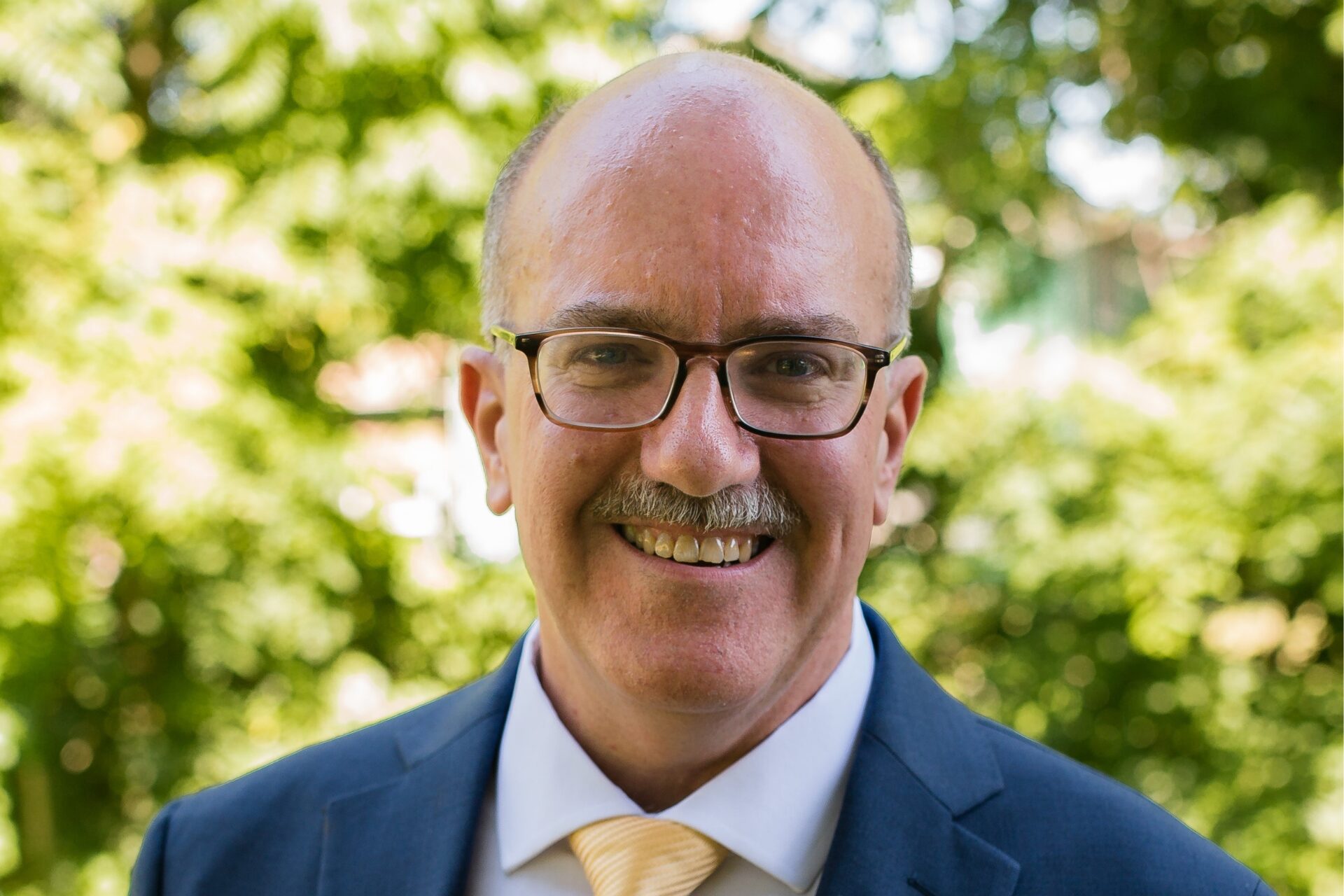Rev. Dr. Chris Momany, pastor of Dowagiac: First UMC, was one of the 52 writers who crafted the Revised Social Principles adopted at General Conference.
JOHN E. HARNISH
Michigan Conference Communications
Yesterday, the 2024 General Conference passed the Revised Social Principles, a major item of business supported by our Michigan Conference delegation. The current Social Principles were adopted in 1972 and have been amended and reaffirmed at every General Conference since.
In 2012, the General Conference called for a major rewrite, which would integrate biblical and Wesleyan references throughout, be written clearly and concisely, and reflect the worldwide nature of the church.
Over four thousand United Methodists from the Philippines, Europe, Africa, and the United States were involved in the feedback loop as each draft was written. Eleven writing teams with 52 members prepared three drafts before the General Board of Church and Society approved the final draft, which was submitted to the General Conference for approval later this month.
Rev. Chris Momany, pastor at Dowagiac: First UMC and former chaplain at Adrian College, was a member of the writing team. His work began in 2012, when he was invited to join the team focused on “The Economic Community” section. Their writing focused on issues like globalization, the dignity of work, economic inequities, and serving the common good.
By 2019, the writing team had completed a final draft in preparation for the 2020 General Conference, but because of COVID-19, that conference was delayed until now.
“I think I was asked because of my work on human trafficking and the ministry of Rev. Asa Mahan, the founder of Adrian College,” Momany said. “He was a staunch abolitionist and emphasized the intrinsic worth of people, which became a motto for my work on the history of the abolitionist movement and human trafficking today.” Momany’s research resulted in writing the book Compelling Lives: Five Methodist Abolitionists and the Ideas that Inspired Them. He is also a contributor to a brand-new book, Awakening to Justice: Faithful Voices from the Abolitionist Past.
In summarizing the paragraphs on “The Economic Community,” Momany said, “This section of the Social Principles is really about the value of people. It states that at the heart of labor is a call to value people more than systems of production, acquisition, and accumulation.”
The writing team was fairly diverse, with contributors from several different nations and cultures. That gave the team, according to Momany, an increased awareness about economic issues beyond the North American context. He noted, “The foundation of it all is the dignity of people — each and every single human being.”
Momany said collaboration on the writing team was both intense and rewarding. In early meetings, they spent time in a common seminar room, outlining and wordsmithing. “Once we had a draft of the various parts,” he said, “we put them together and reviewed them as a team.”
The writing and editing of the Revised Social Principles was somewhat like the work on Momany’s recent book, Awakening to Justice, but there were differences. “Awakening represents historical documentation,” he said. “Five of us served as editors, but then we each wrote a chapter, and then five others from our group joined us and wrote chapters. The Social Principles required research but are a declaration of human rights and Christian responsibilities.”
“It was an honor to be part of the endeavor,” expressed Momany. “Friendships were made, beyond basic denominational commonality. We learned much from each other, and the writers were diverse in their vocational experience — some more academic, others more popular and expressive. We worked well together.”
Reflecting on the final product, Momany said, “It is not perfect, and like any statement, it has its limitations, but I believe it holds up a truly Wesleyan vision for the work of the church in the world. I am glad it has been affirmed, and hopefully, it becomes an inspiration for the future.”
Last Updated on May 6, 2024

